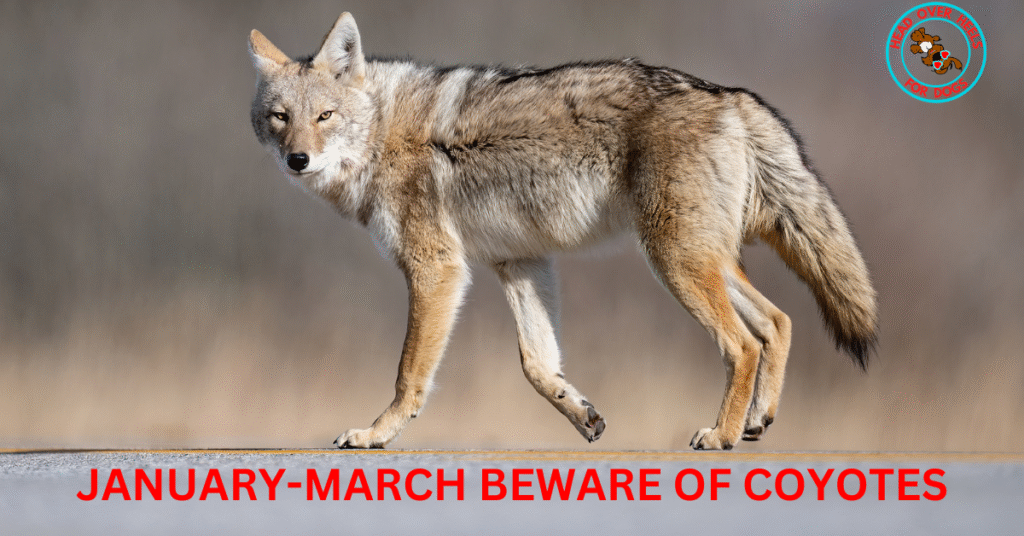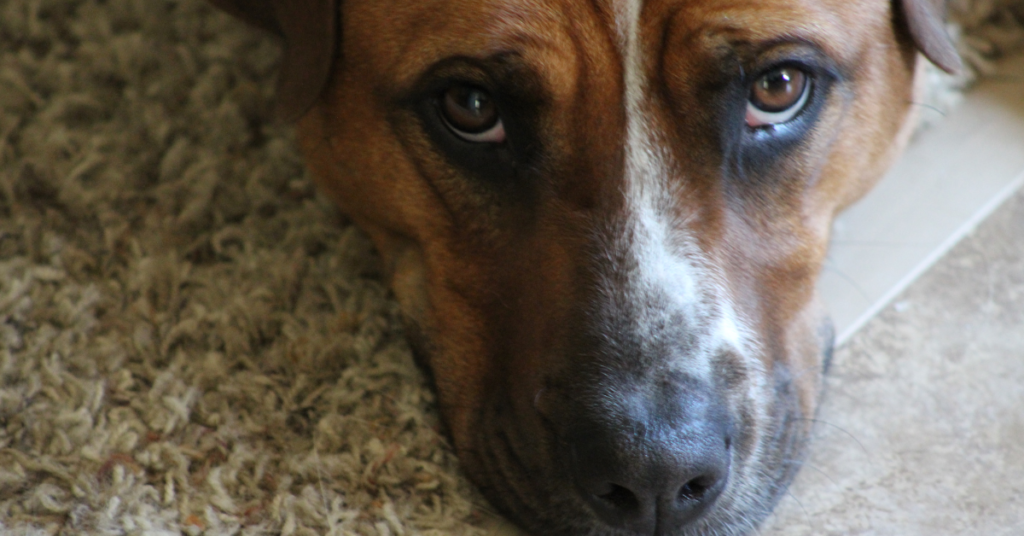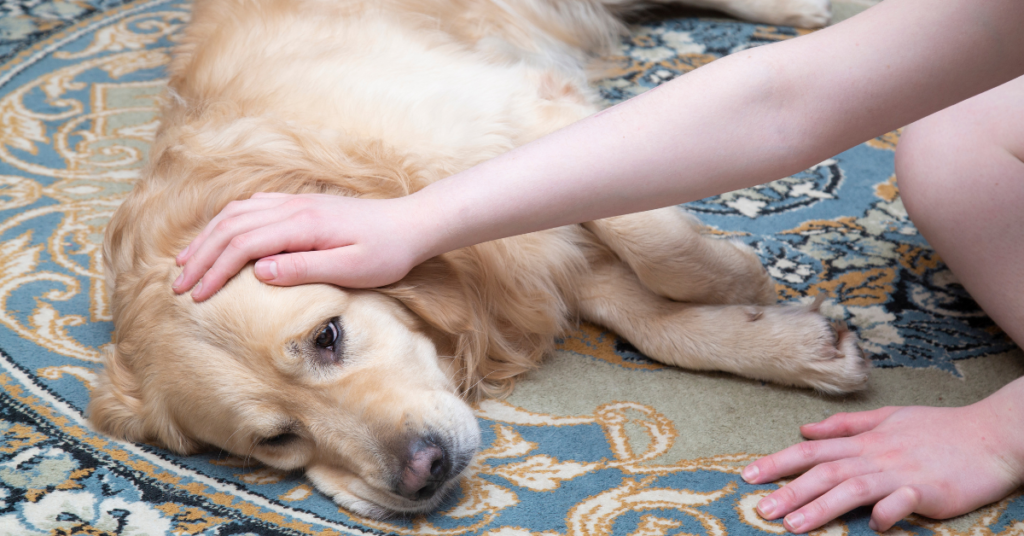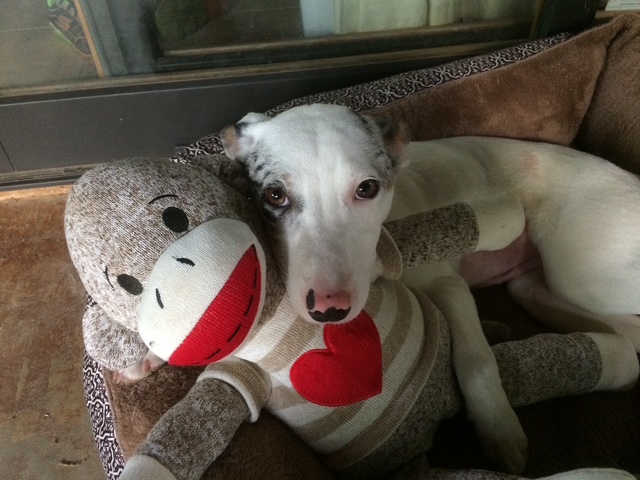Vaccinating your puppy is crucial to their health and well-being.
Vaccines help your puppy build immunity against dangerous diseases.
A vaccination schedule ensures they receive protection at the right stages of their development.
Puppies are born with antibodies from their mothers, but these fade after a few weeks.
It’s essential to follow a consistent vaccination schedule to avoid gaps in protection.
*Disclaimer: This Post May Contain Affiliate Links. This Means That I Receive A Small Commission At No Extra Cost To You Should You Click Through And Make A Purchase. Learn More On My Policy Page
Understanding Puppy Vaccinations
Vaccines work by stimulating your puppy’s immune system to recognize and fight specific diseases.
By receiving vaccines at the right time, your puppy can build immunity to harmful pathogens without having to experience the full force of the illness.
There are two types of vaccines:
- Core Vaccines: These are essential for all puppies as they protect against diseases that are common, highly contagious, and potentially fatal.
- Non-Core Vaccines: These are optional and depend on your puppy’s risk of exposure based on lifestyle, geographic location, and environment.
Which Vaccines Are Essential for My Puppy?
Core puppy vaccinations are vital in preventing life-threatening diseases that can spread rapidly. The most common core vaccines include:
- Canine Distemper Virus (CDV): This virus affects the respiratory, gastrointestinal, and nervous systems.
- Canine Parvovirus (CPV): A highly contagious disease that causes severe vomiting, diarrhea, and dehydration.
- Canine Adenovirus-1 (CAV-1): Causes infectious canine hepatitis, which impacts the liver, kidneys, and blood vessels.
- Canine Parainfluenza Virus: A highly contagious virus that causes respiratory infections and is one of the main causes of Kennel Cough.
- Rabies Virus: Required by law in most areas, rabies is a viral disease that can infect mammals, including humans, with nearly 100% fatality rate if untreated.
Are Non-Core Vaccines Necessary for My Puppy?
If your dog frequently comes into contact with other dogs or spends time in outdoor areas where they might be exposed to ticks, waterborne diseases, or kennel cough, non-core vaccines may be recommended.
Non-core vaccines may not be required for every puppy, but depending on your region, your dog’s lifestyle, or where you travel, they may be beneficial.
These include:
- Bordetella bronchiseptica: Also known as Kennel Cough, often recommended for dogs that frequently socialize with others (such as at dog parks or boarding facilities).
- Leptospirosis: Particularly important for dogs that spend time in areas with standing water, as it can be transmitted via contaminated water sources.
- Lyme Disease: Recommended for puppies and dogs in areas where ticks are prevalent.
Consult your vet to determine which non-core vaccines are suitable for your puppy.
When Should I Start Vaccinating My Puppy?
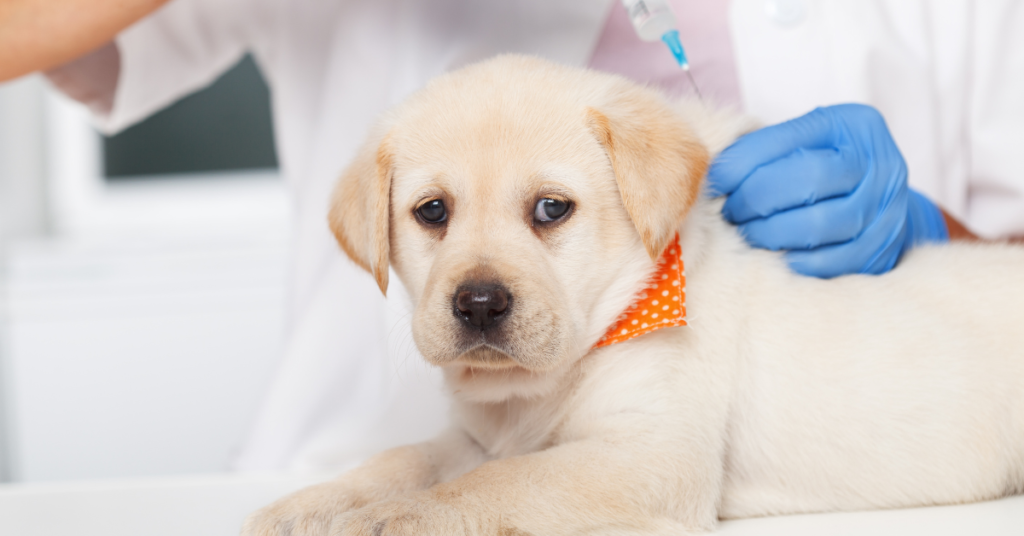
Your puppy will receive vaccines in a series of rounds, usually starting between six to eight weeks of age.
Booster shots are necessary to ensure full immunity, as your puppy’s immune system is still developing.
Always consult your vet to tailor the best vaccination plan for your puppy.accines: core and non-core.
Here’s a puppy vaccination log book for multiple pets that helps you keep up with your vet contact information, breeder contact information, date of birth, shot records, vet visits, etc. It’s very handy to have.
| Age | Core Vaccinations | Non-Core Vaccinations |
|---|---|---|
| 6 – 8 Weeks | Distemper, Parvovirus | Bordetella |
| 10 – 12 Weeks | DHPP(Distemper, Hepatitus-Canine Adenovirus, Parvovirus, & Parainfluenza) | Leptospirosis, Bordetella, Lyme Disease, Influenza |
| 16-18 Weeks | DHPP, Rabies | Leptospirosis, Bordetella, Lyme Disease, Influenza |
| 12 – 16 Months | DHPP, Rabies | Leptospirosis, Bordetella, Lyme Disease, Coronavirus |
| Every 1 – 2 Years | DHPP | Leptospirosis, Bordetella, Lyme Disease, Influenza, Coronavirus |
| Every 1 – 3 Years | Rabies (as per law) | — |
What Happens if My Puppy Misses a Vaccine?
If your puppy misses a vaccine, it’s important to contact your vet as soon as possible.
Your vet will help you get back on track and may reschedule the puppy vaccinations for a later date.
Delaying a vaccine increases the risk of your puppy being exposed to serious diseases.
Skipping vaccines could also leave your dog vulnerable to life-threatening illnesses that could otherwise be prevented.
In some cases, booster vaccines may be required to ensure full immunity.
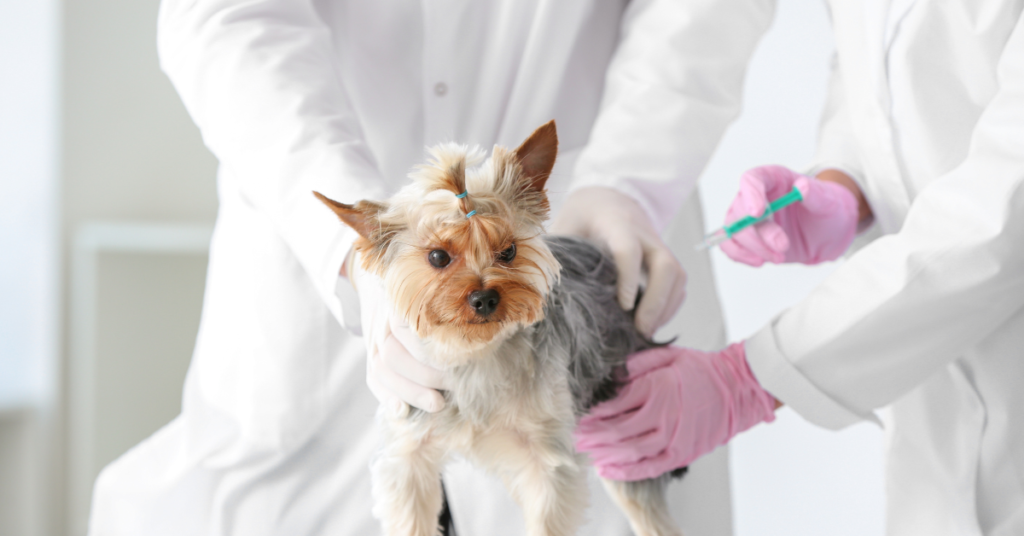
What Are the Side Effects of Puppy Vaccinations?
Most puppies experience only mild side effects after receiving their vaccines.
- Mild lethargy: Your puppy may feel a bit sleepy for a day or two.
- Soreness at the injection site: Mild swelling or tenderness can occur but should resolve quickly.
- Mild fever: A low-grade fever is a normal immune response.
In rare cases, your puppy may have more severe reactions such as:
- Vomiting
- Diarrhea
- Swelling at the injection site
- Difficulty breathing
If any severe reactions occur, it’s important to contact your vet immediately.
Severe reactions, such as difficulty breathing or swelling of the face, are uncommon but possible.
If your puppy has had an allergic reaction to a vaccine in the past, it’s important to inform your vet so they can adjust the vaccination plan.
Always monitor your puppy after their vaccines to ensure they aren’t experiencing any severe side effects.
Can My Puppy Go Outside Before Being Fully Vaccinated?
In addition to keeping up with your puppy’s vaccination schedule, there are a few other steps you can take to ensure they stay healthy:
- Avoid High-Risk Areas Before Vaccination: Until your puppy is fully vaccinated, avoid taking them to places where they could be exposed to diseases, such as dog parks or areas frequented by stray animals.
- Practice Good Hygiene: Always wash your hands after handling other dogs or potentially contaminated materials.
- Maintain Regular Vet Visits: Regular checkups ensure that your puppy is developing properly and allows your vet to monitor any potential health concerns.
How Much Do Puppy Vaccinations Cost?
The cost of puppy vaccinations can vary depending on your location and vet, but core vaccines generally range from $75 to $100 per visit.
Non-core vaccines may add an additional $20 to $30 per shot.
Often times your local shelter may have a vaccine clinic where the prices are significantly cheaper.

How Do Vaccines Work in Puppies?
Vaccines work by introducing a small, harmless portion of the virus or bacteria into your puppy’s immune system.
This triggers the immune system to produce antibodies that will recognize and fight off the real pathogen if your puppy is ever exposed to it.
Puppies need a series of booster vaccines because their immune systems are still developing, and the protection from the first round of shots may not be enough.
The immune system strengthens with each booster shot, building long-term immunity.
What If My Puppy Misses a Vaccine?
If you miss a scheduled vaccine, contact your vet as soon as possible to get your puppy back on track.
Delaying vaccinations increases the risk of disease exposure.
Why Are Booster Shots Important for dogs?
Booster shots are crucial to maintaining your puppy’s immunity.
The initial series of vaccines provides the foundation, but booster shots reinforce your puppy’s ability to fight off diseases.
Booster shots are typically administered 12 to 16 months after the initial series and every 1 to 3 years thereafter.
Without boosters, your dog’s immunity may weaken, leaving them vulnerable to infection.
Protect Your Puppy with a Proper Vaccination Plan
Following the proper vaccination schedule is one of the most important things you can do for your puppy’s health.
Core vaccines guard against deadly diseases like distemper and rabies, while non-core vaccines provide additional protection based on your puppy’s lifestyle.
By following the recommended vaccination schedule and consulting your vet, you’re giving your puppy the best chance at a healthy life.
Always keep track of your puppy’s vaccination records, and don’t hesitate to reach out to your vet with any concerns.
If you’re looking for more information on puppy care, check out AKC’s Puppy Vaccination Guide for additional resources.
Remember: A well-vaccinated puppy is a happy, healthy puppy.


